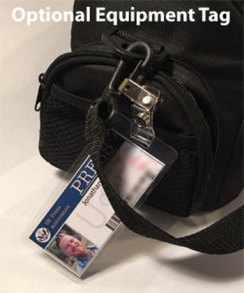How To Get A Press Pass
Press passes/media passes allow journalists to access various areas, venues, functions etc. There are many different types of passes depending on the venue or event as well as how high of a profile the venue/event may have (high school/college sports VS Pro sports) etc. Freelance journalists and photojournalists can acquire press/media passes with the proper planning, connections or being part of a network like the US Press Association.
1. Research beforehand. Special events include concerts, sporting events, and other ticket holding events. The press/media passes for these events typically grant you free entry, sometimes allows you to go backstage to access further coverage and provide a place for you to sit/stand as a journalist or in the case of photographers a sectioned out area for you to get your photographs such as a photographers "pit" in front of a stage at a concert. Usually concerts will have a promoter separate from the venue that is responsible for granting these passes.
- Research the event and contact the venue for help tracking down who is in charge. "US Press Association will perform this function on your behalf if needed".
2. Prepare credentials. In order to get a press pass for a venue or event, you're usually going to need credentials/press pass or records that prove you work for a media outlet or are acting as a freelance source for a media outlet. The US Press Association membership will help you fulfill this requirement. You can use previous articles or coverage that relates to the event(s) you are interested in as well as building your US Press Association member profile and providing links to your (website(s), blog, portfolio(s), social media profiles. This will help the promoters or other decision makers see your body of work.
-
A good way to prove your affiliation with a news source is to provide a link to your US Press Association member profile or articles, photos, videos, or other media you have posted on the USPA website.
-
Be sure to include an email signature stating your primary role or function. Your US Press Association Press Pass and profile page will help identify your role. (photographer, videographer, writer, editor) etc.
3. Contact. Try to contact and secure your position as early as possible. Let them know who you are and who you work for or will be providing coverage for. Often a press office will go by the name, public affairs office, or public relations office or editorial assignment.
You can choose to do this on your own, or as a US Press Association member you can complete a credential assistance form 24/7 by logging into your member account and clicking the link in your member Resource menu.
We will than contact them on your behalf and help try to secure your pass.
-
You’ll be required to offer information about your publication or blog's followers that will benefit from the coverage. By posting your work (writing, photos, video) on the US Press Association website, you can use your member unique monthly visitors number rather than your own websites monthly visitors.
-
You can compose a simple email requesting access. If done properly this can yield great results. Again, if you feel you need assistance with this process the US Press Association is here to help you as a member.

